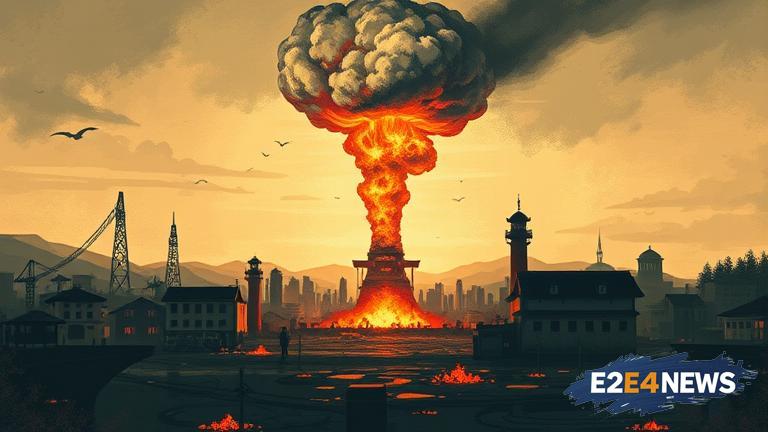The atomic bombing of Hiroshima on August 6, 1945, was a pivotal moment in world history, marking the first use of a nuclear weapon in warfare. The bombing, which killed an estimated 70,000 to 80,000 people immediately, was a demonstration of the devastating power of nuclear weapons. However, the question remains as to whether the bombing was a show of strength meant to shape the future world order. The United States, which dropped the bomb, had been engaged in a long and bloody war with Japan, and the bombing was seen as a means to bring a quick end to the conflict. But some historians argue that the bombing was also intended to send a message to the Soviet Union, which was emerging as a superpower at the time. The bombing of Hiroshima was followed by the bombing of Nagasaki just three days later, which further solidified the United States’ position as a dominant world power. The aftermath of the bombing saw a significant shift in the global balance of power, with the United States and the Soviet Union emerging as superpowers. The bombing also marked the beginning of the Cold War, a period of tension and competition between the two superpowers that would last for decades. In the years following the bombing, the world witnessed a series of proxy wars and conflicts, as the two superpowers vied for influence and control. The bombing of Hiroshima also had a profound impact on the development of nuclear weapons, with many countries seeking to develop their own nuclear capabilities. Today, the threat of nuclear war remains a pressing concern, with many experts warning of the dangers of nuclear proliferation. The legacy of the Hiroshima bombing continues to be felt, with many survivors and their families still seeking justice and compensation for their suffering. The bombing also serves as a reminder of the devastating consequences of war and the importance of working towards peace and disarmament. In recent years, there has been a growing movement towards nuclear disarmament, with many countries calling for a ban on nuclear weapons. The United Nations has also played a key role in promoting disarmament and non-proliferation efforts. Despite these efforts, the threat of nuclear war remains, and the world continues to grapple with the challenges of nuclear security. The bombing of Hiroshima serves as a stark reminder of the importance of diplomacy and international cooperation in preventing the use of nuclear weapons. As the world continues to navigate the complexities of global politics, the legacy of the Hiroshima bombing remains a powerful symbol of the devastating consequences of war and the importance of working towards a more peaceful and secure world. The bombing of Hiroshima was a traumatic event that had a profound impact on the world, and its legacy continues to shape international relations and global security today. The event marked a turning point in world history, and its effects are still being felt today. The world must continue to learn from the lessons of Hiroshima and work towards a future where nuclear weapons are no longer a threat to global security. The survivors of the bombing, known as hibakusha, have played a crucial role in promoting peace and disarmament, and their stories serve as a powerful reminder of the human cost of war. The bombing of Hiroshima was a tragic event that resulted in immense human suffering, and it is essential that we remember and learn from this tragedy to prevent similar events from occurring in the future. The international community must continue to work towards a world where nuclear weapons are no longer a threat, and where diplomacy and international cooperation are the primary means of resolving conflicts. The legacy of the Hiroshima bombing serves as a reminder of the importance of promoting peace, disarmament, and international cooperation, and it is essential that we continue to work towards these goals in the years to come.
